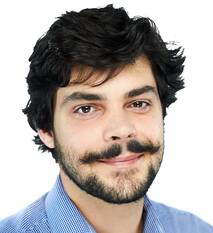PhD Dissertation Defense, Emilien Macault, Economics and Decision Sciences

Congratulations to Dr Emilien Macault, Economics and Decision Sciences specialization, who successfully defended his Doctoral Dissertation at HEC Paris, on December 7, 2021.
Specialization: Economics and Decision Sciences
Dissertation Topic: Information, Coordination and Cooperation: Essays on Learning in Dynamic Games.
Advisor: Tristan Tomala, Professor, Economics and Decision Sciences, HEC Paris
Jury Members:
- Penelope Hernandez, Professor, Universitat de Valencia (LINEEX)
- Fredéric Koessler, Director of Research CNRS, Paris School of Economics
- Lucie Menager, Professor, Universite Paris 2 Panthéon-Assas (LEMMA)
- Marco Scarsini, Professor, LUISS Guido Carli (Economia e Finanza)
- Nicolas Vieille, Professor, Economics and Decision Sciences, HEC Paris
- Tristan Tomala, Professor, Economics and Decision Sciences, HEC Paris, Advisor
Abstract: This thesis studies leaning patterns in dynamic games. It consists in three independent parts. In the first one, I study non-Bayesian models of opinion formation in networks. These models consider a set of agents embedded in a network structure exchanging their opinion on some state of the world at discrete times. I propose a stochastic extension of non-Bayesian learning based on reinforcement learning models. I analyze convergence properties and characterize conditions that ensure the emergence of a consensus among a population. In the second part, I study the dynamics of social learning in routing games with incomplete public information. At discrete times, continua of agents route through a network from an origin node to a destination node. The travel time, or latency, of each edge is modeled as a function depending both on the mass of agents using that edge and a global unknown state parameter. I characterize necessary and sufficient conditions so that, in the limit, either the public belief converges to the truth or agents play an equilibrium of the full information game at each stage. In the last part, I propose a theoretical model of environmental economics. I study how two competing states balance between a short-term payment flow and a long-run payoff depending on the state of the world when they can choose between engaging in environmental transition or keeping the status quo. This model proposes an approach combining elements from revision games and games with frequency-dependent payoffs. In this context, I aim at characterizing optimal strategies and identifying conditions that allow the emergence of cooperative behavior.